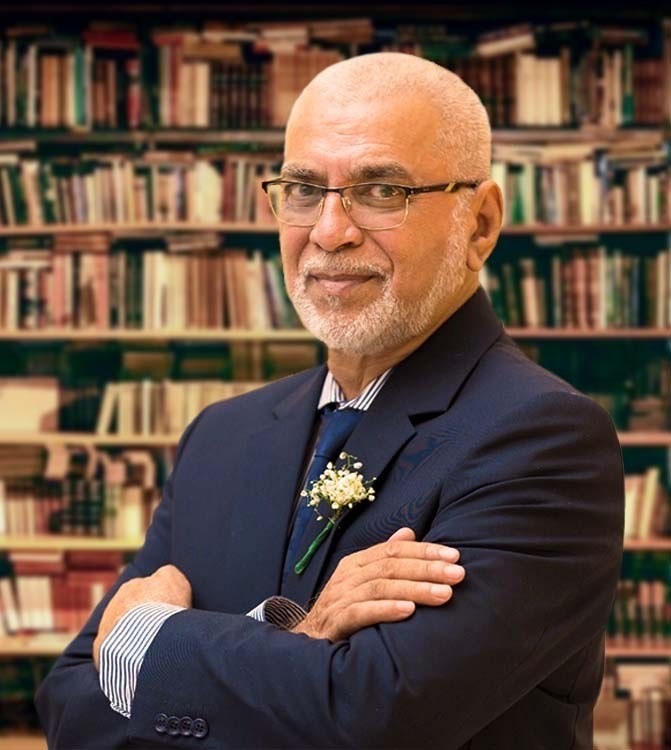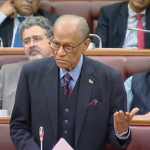Islam treats people on the basis that they are human beings who, because of a variety of factors, are often at variance with the naturally pure state in which they were created. What is comforting to the believer, however, is that the differences of opinion among the Companions did not spring from weakness in belief as to the truth of the Prophet’s (SAW) teachings. Instead, they resulted from a genuine desire to ascertain the truth through patient investigation and discover the purpose of the Law-giver.
So long as the Prophet was the source of these laws, we find that no disagreement lasted longer than it took to refer it to him. In early Muslim history, the causes of differences of opinion in most cases hinged on the linguistic and juristic interpretation of Quranic texts and the interpretation of the Sunnah of the Prophet. There were certainly no hidden malicious motives behind these differences, much to the disappointment of the hypocrites who were bent on sowing the seeds of discord in the community. This accounts for the ease and the speed with which these differences dissipated as soon as the disputants met the Prophet or as soon as a relevant text was produced by anyone. From the Companions’ attitude, we can see the soundness of the saying that one who possesses a sound natural disposition supports truth wherever he finds it. With the rapid spread of Islam after the demise of the Prophet, there surfaced new and more critical issues in the Islamic sphere which have in turn contributed to the spirit of disagreement.
The blessed Prophet once remarked, “Difference of opinion in my Ummah are a blessing.” He didn’t mean that Muslims should argue about everything or be divided, rather, he was pointing out that it was good for Muslims to think, to reason together, to discuss things and that if they disagreed over something, that it was all in the pursuit of knowledge.
Allah is very harsh against those who make divisions. He said, “And be not like those who split up their way of life and become mere sects, each group rejoicing in what it (claims) it has.” 30:31-32. Further, He said, “As for those who divide their way of life and break up into sects, you have no part of them at all. Their affair is with Allah. He will tell them the truth of what they did in the end.” 6:159
We are blessed as a community in that we have our original book and the complete record of the life of our Prophet. So, we must use those two main sources to explain what Islam really is. Sincere people seek to learn and practice the truth and Allah guides those who seek him. Anything else is opinion.
On many occasions, Muslims have disagreed over what something means or what to do. The key is to follow the Islamic manners of how to deal with differences. We don’t have to agree all the time, but we don’t fight over disagreements as if we were enemies. More importantly, we do not curse, neither him, nor his family or his generation of offspring for his opposing views. Muhammad (SAW) never in his whole life cursed anyone, being ‘a blessing for the whole humanity’.
And if we are truly wrong and realize it, we must not stick to a false position out of pride or fear of “losing.” An arrogant person refuses to accept logic and a proud and vain person never likes to listen to guidance. Before the battle of Khandaq, the Muslims had to decide what to do. Some wanted to go out and fight while others wanted to stay in the city and defend from there. The Prophet listened to both sides and in the end, he agreed with those who wanted to defend from the city. He didn’t barge in with his own personal preferences nor did the Shura, or group discussion, become heated and full of antagonism. People disagreed over an issue but united after a majority decision was taken.
Allah, the exalted, gave us a formula for dealing with differences when he said in the Quran that this book is Al Furqan, the standard to go by. And further, He instructed us to follow the example of the blessed prophet. 33:21
If we have a disagreement, especially between the followers of one Mazhab and another, we must respect each other’s opinions and present our evidence. In the end, even if neither side proves a point, we must be courteous and respectful. We have seen countless showdowns between people with different opinions in which the end-result was ill will and hurt feelings. What’s even worse is that such a display of rude behaviour on the part of people who are supposed to know Islam makes the whole community the laughing stock in the media, in front of other community and other Muslims shy away from the Mosques and Muslim gatherings. It has an even worse effect on new converts and potential converts. Muslims should handle their differences with proper ethics, behaviours or good manners. When we have differences, we must not forget that the disagreement should not affect the bond of brotherhood among us.
By Bashir Nuckchady




![[Yoga] A shared legacy, a shared future](https://sundaytimesmauritius.com/wp-content/uploads/2025/06/Yoga-Article-HC-218x150.jpg)
![[Khutbah – La Réflexion du Vendredi] Tawakkul, la confiance absolue en Allah (swt)](https://sundaytimesmauritius.com/wp-content/uploads/2025/06/Tawakkul-218x150.jpg)

![[Poetry corner] In memory of my friend Swabir Goodur](https://sundaytimesmauritius.com/wp-content/uploads/2025/04/CASAM-218x150.jpg)
![[Doha Football Academy] Eid Cup 2025](https://sundaytimesmauritius.com/wp-content/uploads/2025/06/c34ff12a-6673-4967-9709-cd171a61efd6-1024x683-1-150x150.jpg)
![[Ex-parlementaires] Les manifestants du MSM renonceront-ils à leur pension ?](https://sundaytimesmauritius.com/wp-content/uploads/2025/06/pic-150x150.jpg)


![[Doha Football Academy] Eid Cup 2025](https://sundaytimesmauritius.com/wp-content/uploads/2025/06/c34ff12a-6673-4967-9709-cd171a61efd6-1024x683-1-100x70.jpg)
![[Ex-parlementaires] Les manifestants du MSM renonceront-ils à leur pension ?](https://sundaytimesmauritius.com/wp-content/uploads/2025/06/pic-100x70.jpg)
